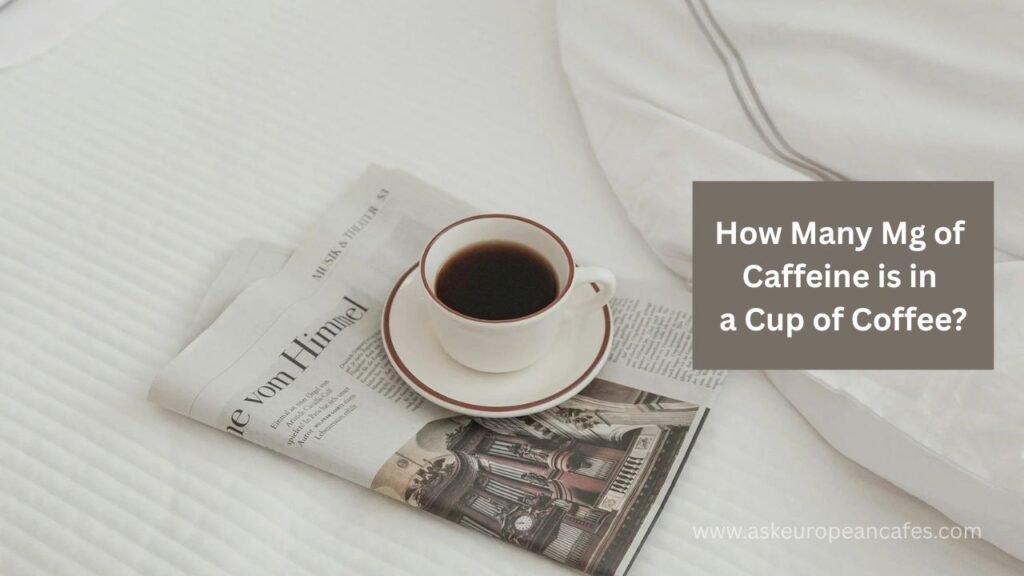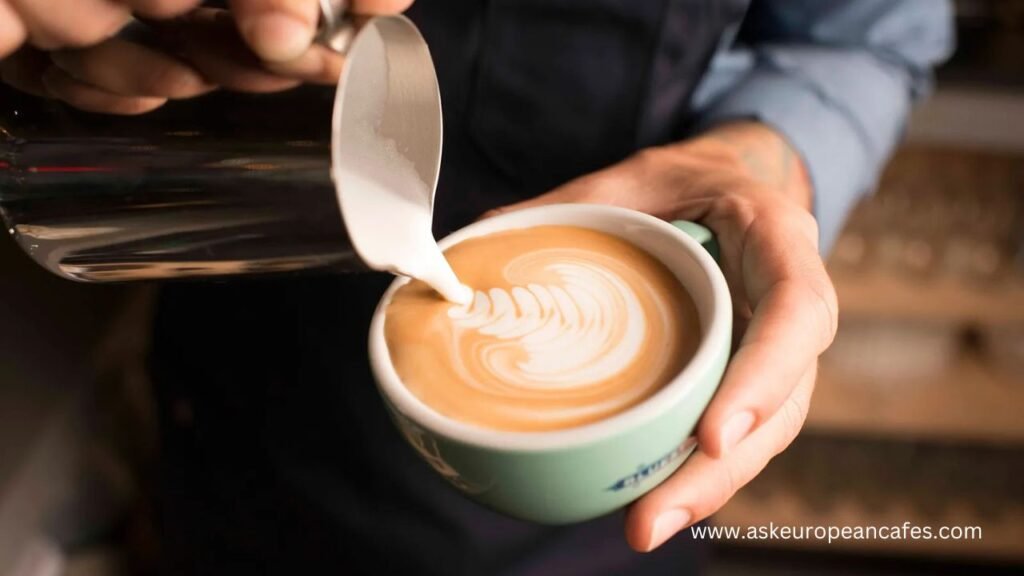How Many Mg of Caffeine is in a Cup of Coffee
Have you ever thought how much caffeine you are really drinking in your morning cup of coffee? I surely have!
One morning while sitting with my hot coffee and reading the Mayo Clinic website, I decided to dig deeper into this. I found out some really surprising facts that I am excited to share with you today.
Let’s talk about how much caffeine is in different types of coffee and drinks, and if it is something we should worry about.
How Many Mg of Caffeine is in a Cup of Coffee
Caffeine Content in Different Types of Coffee
Not all coffee is the same. The way coffee is made prepared the amount of caffeine it has. Let’s look at the most common types.
Brewed Coffee
Brewed coffee is the regular coffee we make at home or get at a café. It is made by flowing hot water over ground coffee beans.
Caffeine Content: About 96 mg in 8 oz (237 ml) cup.
This is the coffee that most people drink in the morning. I love its smell and cozy feeling. Even one cup has lots of caffeine!
Espresso
Espresso is a strong and small shot of coffee. Itis made by forcing hot water through fine coffee grounds.
- Caffeine Content: About 63 mg in 1 oz (30 ml) shot.
It may look small but espresso is powerful! If you love lattes or cappuccinos like me, remember each espresso shot adds up!
Instant Coffee
Instant coffee is made from dried coffee extract. You just add hot water to it.
Caffeine Content: About 62 mg in 8 oz (237 ml) cup.
Instant coffee is easy perfect for busy mornings when there’s no time to make fresh coffee!
Decaf Coffee
Decaf sounds like it has no caffeine right? Not true. Decaf still has a little bit of caffeine.
Caffeine Content: About 1 mg in 8 oz (237 ml) cup of brewed decaf.
Instant Decaf: About 2 mg in 8 oz (237 ml) cup.
If you are trying to avoid caffeine decaf is a good choice but it is not 100% caffeinne-free.
Are Commercial Brands More Caffeinated?
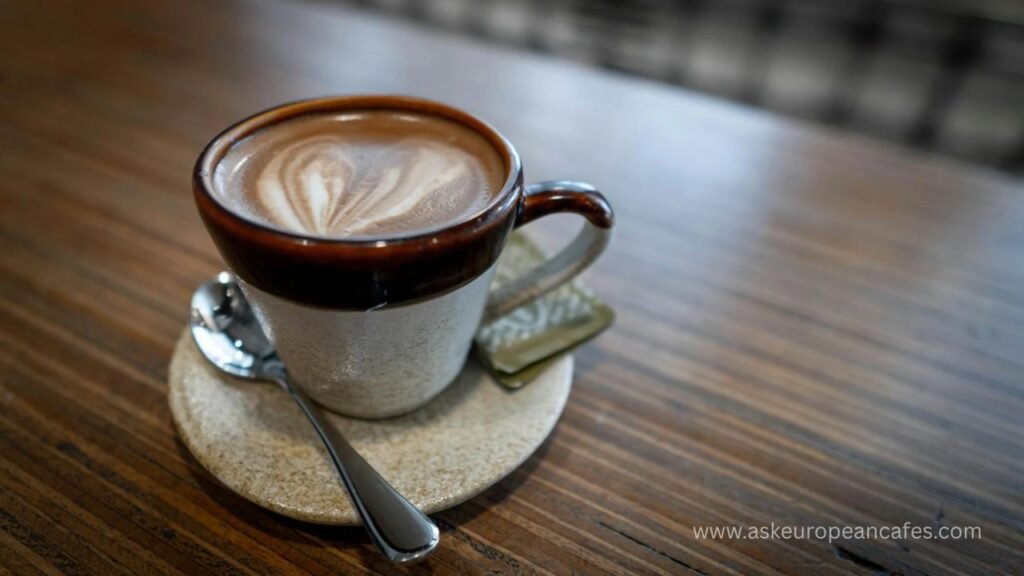
Big coffee brands like Dunkin’ Donuts and Starbucks serve coffee that can be a lot stronger than home-brewed coffee. Let’s look at some examples.
Dunkin’ Donuts
Dunkin’ coffee tastes lighter but packs a punch!
- Medium brewed coffee (14 oz): 210 mg caffeine
- Iced coffee (14 oz): 297 mg caffeine
- Americano (14 oz): 284 mg caffeine
- Cold brew (14 oz): 260 mg caffeine
- Latte (14 oz): 166 mg caffeine
Espresso: 118 mg per single shot.
I often grab an iced coffee from Dunkin’ on a road trip. Now I know why I feel so awake after just half a cup!
Starbucks
Starbucks coffee is even stronger.
- Pike Place Roast (16 oz grande): 310 mg caffeine
- Decaf Pike Place Roast (16 oz): 25 mg caffeine
- Starbucks Reserve Cold Brew (16 oz): 200 mg caffeine
- Iced Caramel Macchiato (16 oz): 150 mg caffeine
- Cappuccino (16 oz): 150 mg caffeine
Espresso: 75 mg per single shot.
Starbucks coffee always feels rich and powerful. If you ever wonder why you can’t sleep after a Starbucks grande, now you know!
What Factors Affect Caffeine Content?
Not every coffee is the same, even if it looks the same. Many things change how much caffeine is inside.
- Type of Coffee Bean: Robusta beans have more caffeine than Arabica beans.
- Roast Level: Lighter roasts have more caffeine than darker roasts.
- Grind Size: Finer grind means more caffeine extraction.
- Brewing Method: Espresso, cold brew, French press – each one makes coffee differently.
- Brewing Time: The longer you brew, the more caffeine you get.
At home, I use a French press, and sometimes I notice that my coffee tastes stronger. Now I know it’s because it steeps longer.
Is Caffeine Something to Worry About?
Experts say up to 400 mg of caffeine per day is safe for most healthy adults. That’s about 4 cups of coffee.
But caffeine can cause problems for some people:
- Headaches
- Nervousness
- Trouble sleeping
- Fast heartbeat
- Upset stomach
If you feel any of these after drinking coffee, it’s smart to cut back.
Pregnant women, breastfeeding mothers, and people trying to become pregnant should be even more careful. It’s best to talk to a doctor about safe limits.
I once drank three big cups of cold brew during a busy workday. I couldn’t sleep all night and learned my lesson the hard way!
Surprising Benefits of Coffee
Now for the good news! Coffee isn’t just a wake-up drink. It has many surprising health benefits too.
- Rich in Antioxidants: Coffee is full of antioxidants that help fight cell damage.
- May Lower Risk of Diseases: Some studies show coffee drinkers have a lower risk of type 2 diabetes, heart disease, and stroke.
- Improves Brain Function: Caffeine can improve mood, memory, and reaction time.
- Boosts Physical Performance: It can give you energy to work out better.
- May Help You Live Longer: Some research links moderate coffee drinking to a longer life.
Drinking coffee daily makes me feel good not just because of the taste, but also knowing it’s helping my body!
Caffeine Content for Coffee, Tea, Soda, and More
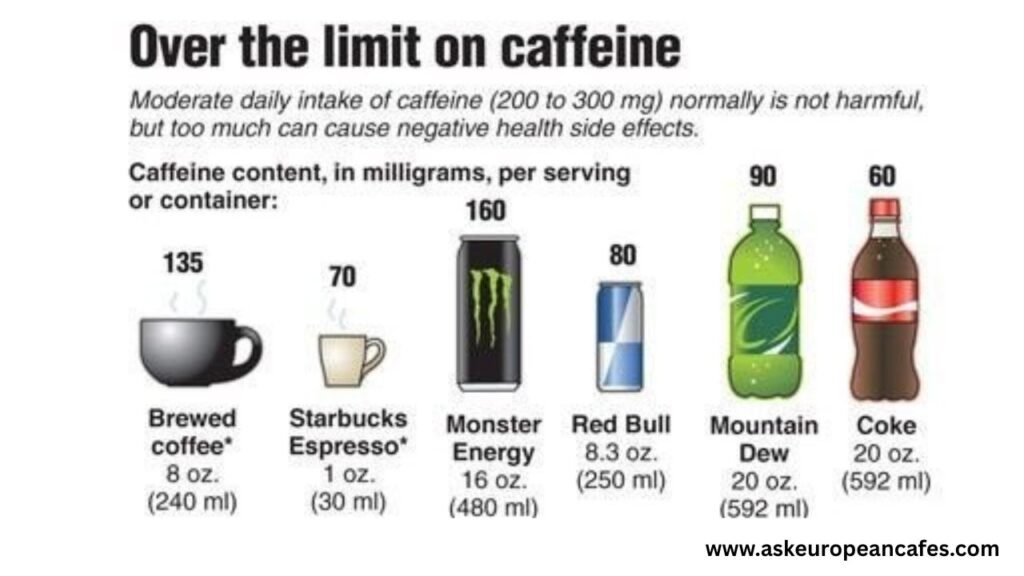
Caffeine is not just in coffee. It hides in many drinks. Let’s look at some popular ones.
| Drink | Size | Caffeine (mg) |
|---|---|---|
| Brewed Coffee | 8 oz (237 mL) | 96 mg |
| Brewed Decaf Coffee | 8 oz | 1 mg |
| Espresso | 1 oz (30 mL) | 63 mg |
| Instant Coffee | 8 oz | 62 mg |
| Instant Decaf Coffee | 8 oz | 2 mg |
| Brewed Black Tea | 8 oz | 48 mg |
| Brewed Green Tea | 8 oz | 29 mg |
| Cola | 8 oz | 33 mg |
| Citrus Soda (with caffeine) | 8 oz | 36 mg |
| Energy Drink | 8 oz | 79 mg |
| Energy Shot | 2 oz (60 mL) | 200 mg |
Even some medicines and chocolates have caffeine! Always check labels if you are sensitive.
Takeaway
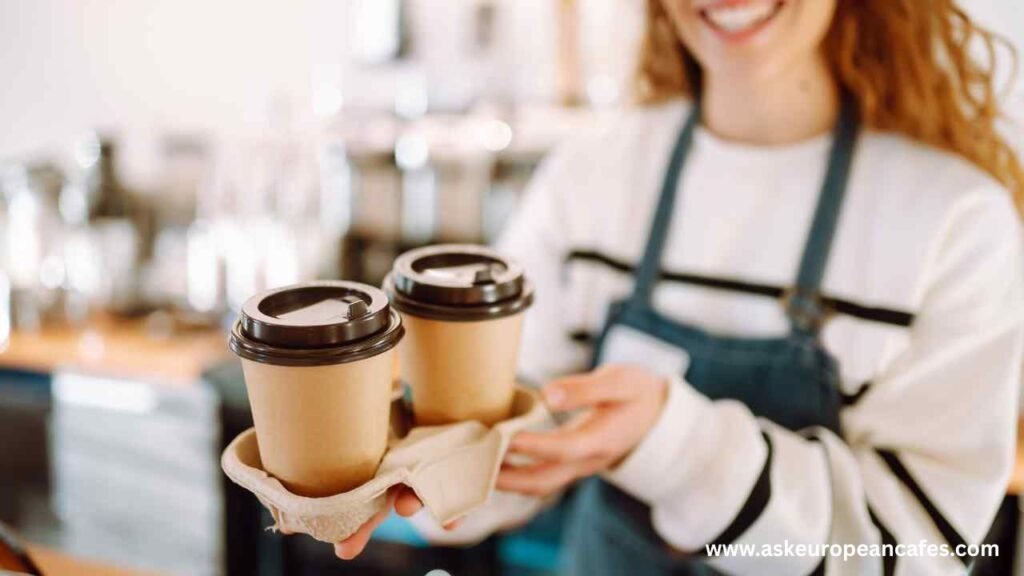
So, how much caffeine is in a normal cup of coffee? It depends!
- A regular brewed coffee has about 96 mg per 8 oz cup.
- Commercial coffees like Starbucks and Dunkin’ can have two or three times more.
- Espresso has about 63 mg in just one tiny shot.
- Instant coffee has a little less than brewed coffee.
- Decaf still has small amounts of caffeine.
Remember, caffeine can be good for you in moderation. It gives energy, helps focus, and may even protect your health. But too much can cause problems like headaches and sleep trouble.
Now that you know all about it, you can enjoy your coffee wisely! Whether it’s a cozy cup at home or a fancy latte from your favorite café, you’ll know exactly what you’re drinking.
I will still keep sipping my morning brew, but now with a little more knowledge.
Conclusion
The amount of caffeine in a cup of coffee can change a lot. It depends on how the coffee is made and where you buy it. A regular home-brewed cup has about 90 to 120 mg of caffeine. But coffee from big brands like Dunkin’ and Starbucks can have even more! Some iced coffees and cold brews have a lot of caffeine. It’s always good to know how much you’re drinking before you take a sip!
FAQs
Q1: How much caffeine is in a regular cup of coffee?
A: A regular home-brewed cup has about 90 to 120 mg of caffeine.
Q2: Does coffee from cafés have more caffeine?
A: Yes! Coffee from places like Dunkin’ and Starbucks often has more caffeine than home-brewed coffee.
Q3: Which coffee has the most caffeine?
A: Iced coffee, cold brew, and strong brewed coffees usually have the highest caffeine.
Q4: Is decaf coffee caffeine-free?
A: Not completely. Decaf coffee still has a small amount of caffeine, about 2 to 25 mg per cup.
Q5: Why does caffeine make me feel awake?
A: Caffeine is a natural booster. It helps you feel more awake and alert.

